How to Hand Sew a Button
In this tutorial, we’ll cover how to sew three types of buttons: flat two-hole buttons, flat four-hole buttons and shank buttons. These are the most common buttons that are used for clothing.
Have you ever tried to get ready to go somewhere and wished you knew how to sew on a button because one just fell off the shirt, pants, etc. as you were getting dressed? Or maybe it’s missing or you are working on a sewing, quilting or crafting project that requires a button. If so, this “how to tutorial blog” is for you.
If you already know how to sew a button, that is awesome. Though, maybe you’ll want to read this and learn something new or you can let our readers know if you do it differently than I do and I'll learn something new! Anyway, let's get started!
General Information on Hand Sewing Buttons
To sew on buttons, I like to use a double-strand of thread with a knot at the end of the double threads. This allows you to attach the button quickly and securely.
Some days, my fingers don’t work as well as I’d like them to and I need a little help with threading my needles. If that is the case for you too, MadamSew carries a Hand Needle Threader which can help get the needle threaded for you.
If you want to learn more about threading a needle or what single vs. double thread looks like, check out our previous “Hand Sewing Basics” blogs:
If you are replacing a button that has fallen off and there still is some old thread left, remove the thread before sewing on the new button.
Once any old thread is removed, you’ll probably see the holes where the old button was. Use these holes as a guide on where to sew on your button.
If there are multiple buttons on your item, try to match your thread color to the color used for the other buttons. If this is the only button, then use a thread that will go well with your clothing item or project.
Many clothing items that have multiple buttons come with a spare button or two sewn somewhere onto the bottom hem or button flap of the clothing piece. So if the button is “lost”…carefully remove one of these spare buttons and then follow the appropriate instructions below to repair your clothing.
You will most often find these types of buttons on tops or on the inside waistband of pants/skirts. You also may find them as closures on bags or used in craft projects.
NOTE: Contrasting thread was used for the pictures and video so you can see the process better.
-1- Using your knotted, double stranded thread, start your stitch about ⅛ inch from one of the holes by putting your needle into the fabric and letting your needle come up through the hole. (This works great when you can’t stitch to the back because you don’t want the thread to be seen on the back. If it is okay to see the thread on the back, see step 1 instructions for buttons with four holes below.)
Note: If you are attaching a button to a waistband or other area where you don’t want it to show on the other side, be careful to keep your stitch between the fabric layers.
-2- Next, thread your button onto the needle through one of the button holes. Then, thread down through the other hole in your button.
-3- Stitch into the other fabric hole let your needle come up through the first fabric and buttonhole. Make sure to pull your thread tight so it is tight against the top of the button.
-4- Repeat this process 3-5 more times.
-5- Stop with the needle below the button but do not go back into the fabric. Wrap your thread around the “stem of thread” located under your button 2-3 times. I think this adds a little extra strength.
-6- Sew through the thread stem or one more time through the two fabric holes (but not the button holes).
-7- Now knot your thread by taking a tiny stitch either through the thread stem or fabric near it…creating a thread loop. Put your needle through this loop and pull it tight. Do this either once or twice.
That’s it! You now have a nice, secure button!
If you would like to watch the process of sewing on a two hole button from start to finish, watch our YouTube video: How to Sew on a Flat Two Hole Button.
Four hole buttons are often found on men’s shirts, blouses, sweaters, coats and sometimes pants and skirts. You can also use them for a variety of projects from pillow cases, bags and more.
NOTE: Contrasting thread was used for the pictures and video so you can see the process better.
-1- Using your knotted, double stranded thread, start your stitch by letting your needle come up through one of the original fabric holes. (This works great when it is okay for the thread to be seen on the back. If you can’t…see step 1 instructions for buttons with two button holes above.)
-2- Next, thread your button onto the needle through one of the button holes. Then, thread down through the diagonally opposite hole in your button and fabric.
-3- Stitch back up into the fabric and buttonhole next to the one you initially started with. Then stitch down through the hole diagonally across from it. This will form a thread “x” on top of your button.
-4- Repeat this process 3-5 more times.
-5- Stop with the needle below the button but do not go back into the fabric. Wrap your thread around the “stem of thread” located under your button 2-3 times. I think this adds a little extra strength.
-6- Sew through to the back through one of the fabric holes.
-7- Now knot your thread by taking a tiny stitch through the button thread at the back or fabric near it…creating a thread loop. Put your needle through this loop and pull it tight. Do this either once or twice.
That’s it! You now have a nice, secure button!
If you would like to watch the process of sewing on a four hole button from start to finish, watch our YouTube video: How to Sew on a Flat, Four Hole Button.
Bonus: Using a Sewing Machine to Sew on Flat Buttons
Yes, flat buttons can also be sewn on by using a special Buttonhole Presser Foot (which is available in our store) on your sewing machine. If you are sewing multiple flat buttons onto a project, it may be a faster way to tackle getting all of the buttons onto your project. To see how this is done, view our: Buttonhole Presser Foot Manual.
You will most often find these types of buttons on tops, dresses and sometimes even coats. You also may find them used in craft projects.
Shank buttons are not flat. They have a little loop under them through which they are attached to the garment or project you are making.
-1- Using your knotted, double stranded thread, start your stitch by letting your needle come up through one of the original fabric holes. (This works great when it is okay for the thread to be seen on the back. If you can’t…see step 1 instructions for buttons with two button holes above.)
-2- Next, thread your button onto the needle through the shank beneath the button. Then, thread down through the other fabric hole.
-3- Repeat this process 3-5 more times.
-4- Sew through to the back through one of the fabric holes.
-5- Now knot your thread by taking a tiny stitch through the button thread at the back or fabric near it…creating a thread loop. Put your needle through this loop and pull it tight. Do this either once or twice.
That’s it! You now have a nice, secure button!
If you would like to watch the process of sewing on a shank button from start to finish, watch our YouTube video: How to Sew on a Shank Button.
Bonus: Using a Sewing Machine to Sew a Buttonhole
Yes, you can make your own buttonhole if you need one for a project you are working on. We have detailed instructions available for you. To see how this is done, view our blog: How to Sew a Buttonhole with a Sewing Machine.
In closing…
I hope that if you have never sewn on a button, that you now have the details to confidently do so for these three types of buttons. Knowing how to sew a button is a basic, both a hand sewing basic as a householde basic. You don't want to throw a garment away because of a button that fell off or pay someone to do it? Hand sewing a button is pretty straightforward, it doesn't take long and you don't need a lot of tools to get to it.
And, for all of our readers who have sewn on buttons, we’d love to hear any tricks or tips you have on what makes sewing buttons easier for you. Also let us know if you use techniques that are different from mine! Together we make sewing easier and more fun!
Catherine Jaynes
Blogging for MadamSew
Madam Sew is an online sewing and quilt shop. We carry the most amazing quilting and sewing supplies! Visit our sewing and quilting store and find out about our remarkable quilting tools, universal sewing machine feet, qualitative notions, sewing essentials, organizers and much more for sewists and quilters. And know that every product comes with clear instructions, tutorial videos and craft inspiration.
Do you want to get in touch with other sewing and quilting enthusiasts? Join our lively Facebook communities too!



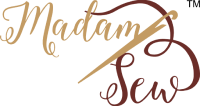





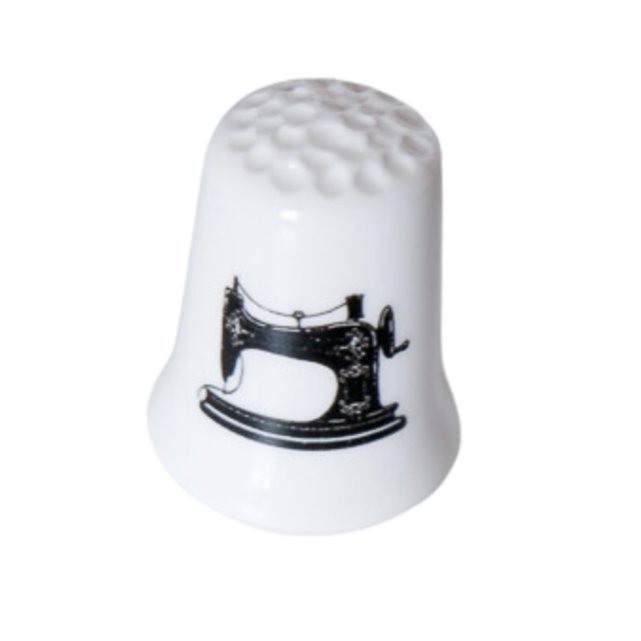


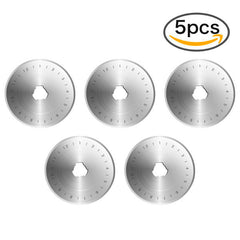

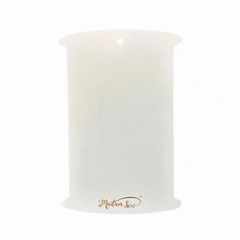
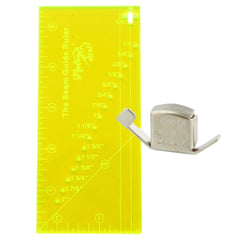
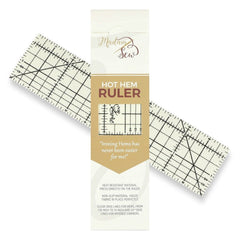
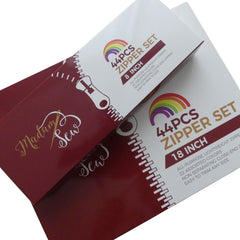
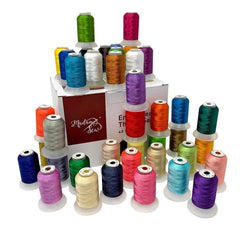

1 comment
I was taught to put a pin between the button and the thread on the top of the button to give a bit of leeway between the button and the garment.